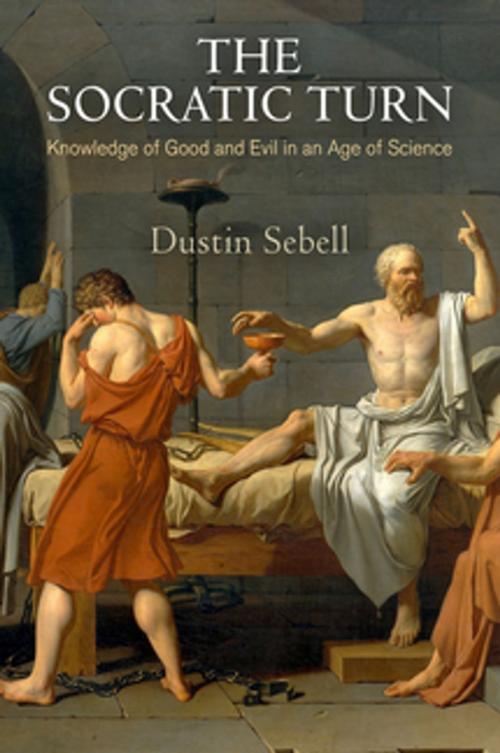The Socratic Turn
Knowledge of Good and Evil in an Age of Science
Nonfiction, Religion & Spirituality, Philosophy, Political, Social & Cultural Studies, Political Science, Politics, History & Theory| Author: | Dustin Sebell | ISBN: | 9780812292244 |
| Publisher: | University of Pennsylvania Press, Inc. | Publication: | October 21, 2015 |
| Imprint: | University of Pennsylvania Press | Language: | English |
| Author: | Dustin Sebell |
| ISBN: | 9780812292244 |
| Publisher: | University of Pennsylvania Press, Inc. |
| Publication: | October 21, 2015 |
| Imprint: | University of Pennsylvania Press |
| Language: | English |
The Socratic Turn addresses the question of whether we can acquire genuine knowledge of good and evil, right and wrong. Reputedly, Socrates was the first philosopher to make the attempt. But Socrates was a materialistic natural scientist in his youth, and it was only much later in life—after he had rejected materialistic natural science—that he finally turned, around the age of forty, to the examination of ordinary moral and political opinions, or to moral-political philosophy so understood.
Through a consideration of Plato's account of Socrates' intellectual development, and with a view to relevant works of the pre-Socratics, Xenophon, Aristotle, Hesiod, Homer, and Aristophanes, Dustin Sebell reproduces the course of thought that carried Socrates from materialistic natural science to moral-political philosophy. By doing so, he seeks to recover an all but forgotten approach to the question of justice, one still worthy of being called scientific.
The Socratic Turn addresses the question of whether we can acquire genuine knowledge of good and evil, right and wrong. Reputedly, Socrates was the first philosopher to make the attempt. But Socrates was a materialistic natural scientist in his youth, and it was only much later in life—after he had rejected materialistic natural science—that he finally turned, around the age of forty, to the examination of ordinary moral and political opinions, or to moral-political philosophy so understood.
Through a consideration of Plato's account of Socrates' intellectual development, and with a view to relevant works of the pre-Socratics, Xenophon, Aristotle, Hesiod, Homer, and Aristophanes, Dustin Sebell reproduces the course of thought that carried Socrates from materialistic natural science to moral-political philosophy. By doing so, he seeks to recover an all but forgotten approach to the question of justice, one still worthy of being called scientific.















